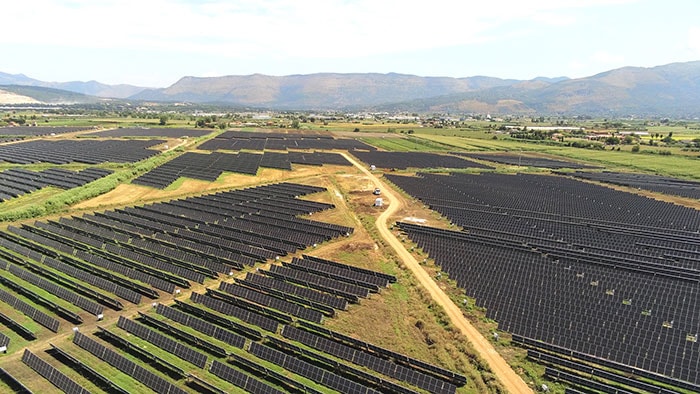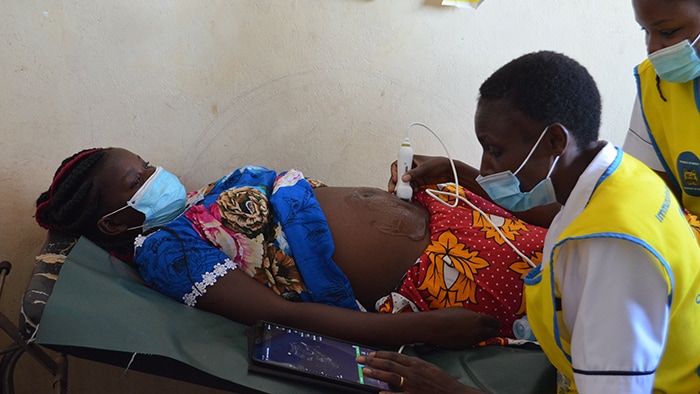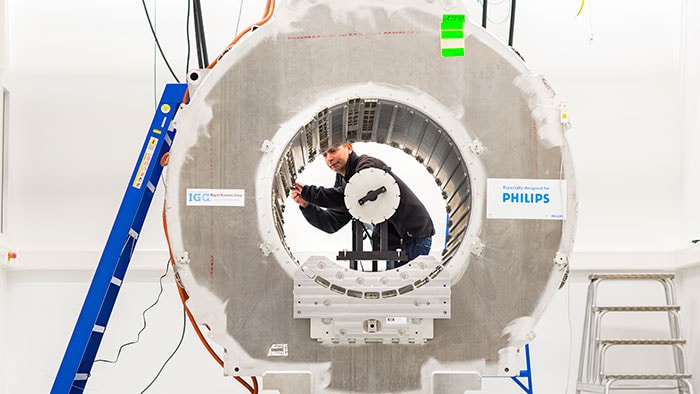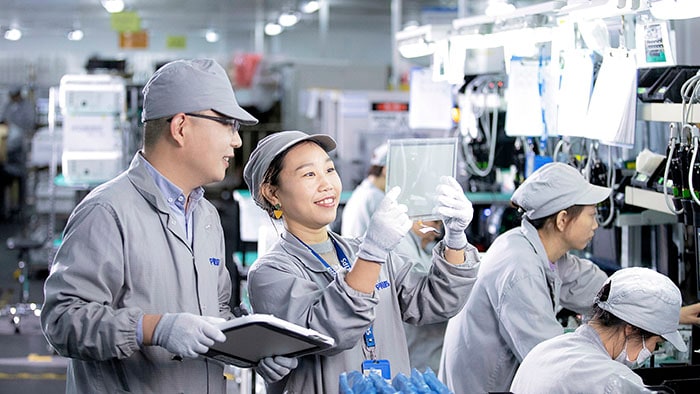Geopolitical unrest and economic instability, natural habitat destruction and the lasting effects of the COVID-19 pandemic, are putting human rights under huge pressure, impacting millions of people’s future prosperity, health and sense of well-being.
In the run up to Human Rights Day on December 10, which emphasizes the importance of ' Dignity, Freedom and Justice for all', Philips issues its latest Human Rights Report today.
Addressing human rights, as well as making sure that every individual at Philips and across the value chain can enjoy the sense of well-being that comes from being valued without discrimination are key elements of the company’s Environmental Social and Governance (ESG) framework that is guiding its business strategy. Beyond Philips’ environmental and social commitments, Philips’ ESG actions are focused on increasing transparency and accountability, while demonstrating and reporting important progress.
As a company whose purpose is to improve people’s health and well-being through meaningful innovation, we fully recognize the link between the health of the planet and of the communities we serve – and that of a society in which human rights should be protected.
Marnix van Ginneken
Chief ESG & Legal Officer, Royal Philips
Reporting - key to accountability
Philips has had a voluntary supplier engagement program, which includes a focus on human rights, since 2005. The company introduced a dedicated company-wide human rights program in 2018, with results published in its Annual Report. Since 2018, it has published a stand-alone report, detailing initiatives to secure human rights and improve living conditions within the organization and throughout the company’s supply chain, together with case studies that illustrate key accomplishments. The report addresses critical topics such as improving labor conditions and creating a safe and healthy workplace at sites and across the supply chain, and building an inclusive business culture. In the supply chain in particular, Philips is structurally and continuously improving working conditions, together with its partners. As part of its broader set of ESG commitments, Philips aims to improve the lives of 1 million workers in its supply chain by 2025, through its dedicated supplier development program. By the end of this year, the company will have improved the lives of over 460,000 people in the supply chain.
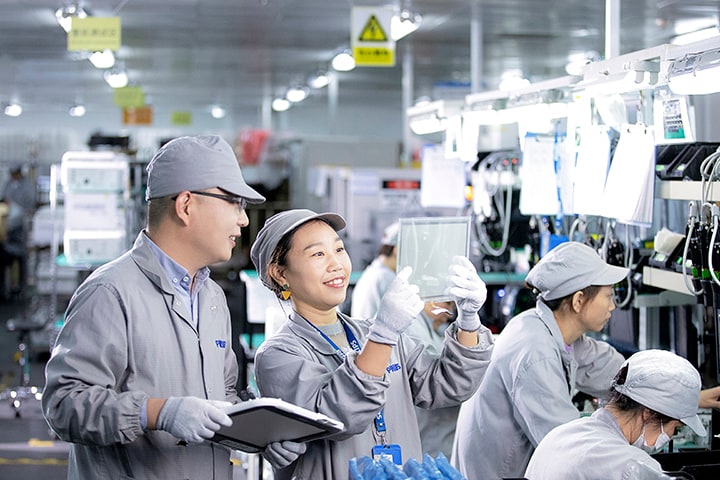
Assessing risk, taking action
In 2022, Philips further extended its Human Rights Impact Assessment program, which aims to actively engage potentially affected stakeholders. The program focuses on gaining insights, fostering constructive dialogues, and mitigating potential risks to the human rights of Philips employees. Already completed at Philips’ sites in Indonesia and China, the Impact Assessment program was rolled out to two more sites in the United States, encompassing 2,000 employees. By the end of 2023, Philips aims to perform Human Rights Impact Assessments at 100% of selected at-risk sites, which will be repeated every three years. Another aspect of mitigating risks is about empowering people to contribute to a safer workplace. The Behavioral Based Safety observers’ network and trainings are a key example and critical initiatives to help reduce accidents and incidents at sites.
Inclusion & Diversity (I&D)
Philips continues to strengthen its efforts to build a more inclusive culture, where people are valued and accepted for who they are, and where everyone can be themselves. Key accomplishments in 2022 include:
Finally, and drawing on best practices and experience from Philips’ existing supplier base and the wider industry, Philips put in place a new ‘Supplier Diversity in Spend Management’ program in North America aimed at increasing the company’s procurement from minority-run businesses. The program has already seen a year-to-date increase of 20% in diverse spend in 2022, compared to 2021, across all North America operations, with more money going to local, minority-owned businesses that, in turn, can reinvest in salaries and communities.
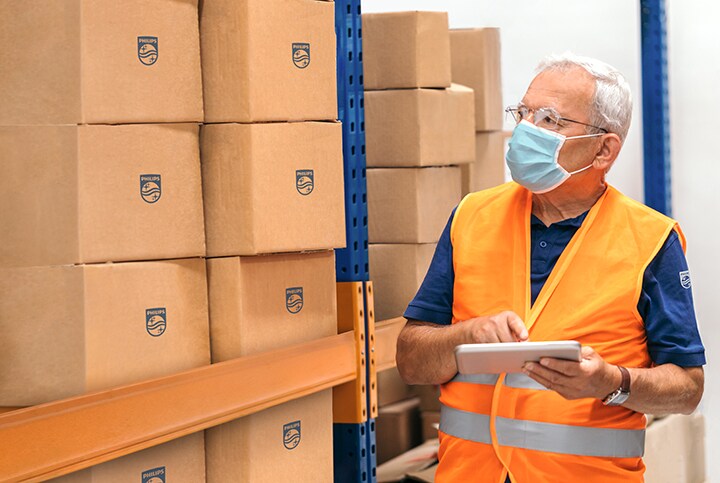
Human rights and responsible sourcing
Philips is committed to not purchasing raw materials, subassemblies or supplies found to contain conflict minerals. Through multi-stakeholder collaboration, the company continues to address the most viable approach for addressing the complexities of minerals value chains, in line with UN Sustainable Development Goal 17 (SDG 17)*. In 2022, Philips collaborated with the Responsible Business Alliance (RBA), the world’s largest industry coalition dedicated to responsible business conduct in global supply chains. In an effort to more rapidly scale and advance proven approaches that improve working conditions in the supply chain, tools and methodologies developed in Philips Supplier Sustainability Program were made available to the RBA and industry peers. This avoids the need to ‘reinvent the wheel’ when assessing supply chain partner sustainability, and can potentially improve millions more lives outside Philips own supply chain.
Access to care
Leveraging Philips’ core competencies in health technology, while keeping in mind the basic human right to good health, the company continues to facilitate Universal Health Coverage (UHC), with a specific focus on mother & child health and cardiovascular care. Through a multi-year partnership between the Philips Foundation and RAD-AID International, Philips is working to improve virtual care and access to diagnostic ultrasound services in hard-to-reach communities. In collaboration with the Bill & Melinda Gates Foundation, it is currently investigating AI-based obstetrics applications that can assist frontline health workers in effectively capturing and interpreting ultrasound images. As part of Philips’ ambition to improve the lives of 2.5 billion people per year by 2030, it aims to improve the health and well-being of 400 million people in underserved communities.
Environmental impact
The UN recently declared that a healthy and sustainable environment is a human right. Philips recognizes that human rights are inextricably linked to climate change, biodiversity, and natural resource depletion. The company remains focused on delivering tangible impact to mitigate climate change. Philips has been climate neutral in its operations since 2021 and continues to reduce the energy consumption of its products and solutions, especially in the use phase, in line with the 1.5C° global warming scenario as set out by the Paris Agreement. Philips is driving significant climate action across its supply chain, aiming for at least 50% of its suppliers (based on spend) to commit to science- based targets for CO₂ emissions reduction by 2025.
Click to download the full Philips 2022 Human Rights Report.
* UN Sustainable Development Goal #17: Strengthen the means of implementation and revitalize the Global Partnership for Sustainable Development.
Share on social media
Topics
Contact

Elco van Groningen
Philips Global Press Office Tel: +31 6 8103 9584
You are about to visit a Philips global content page
Continue





